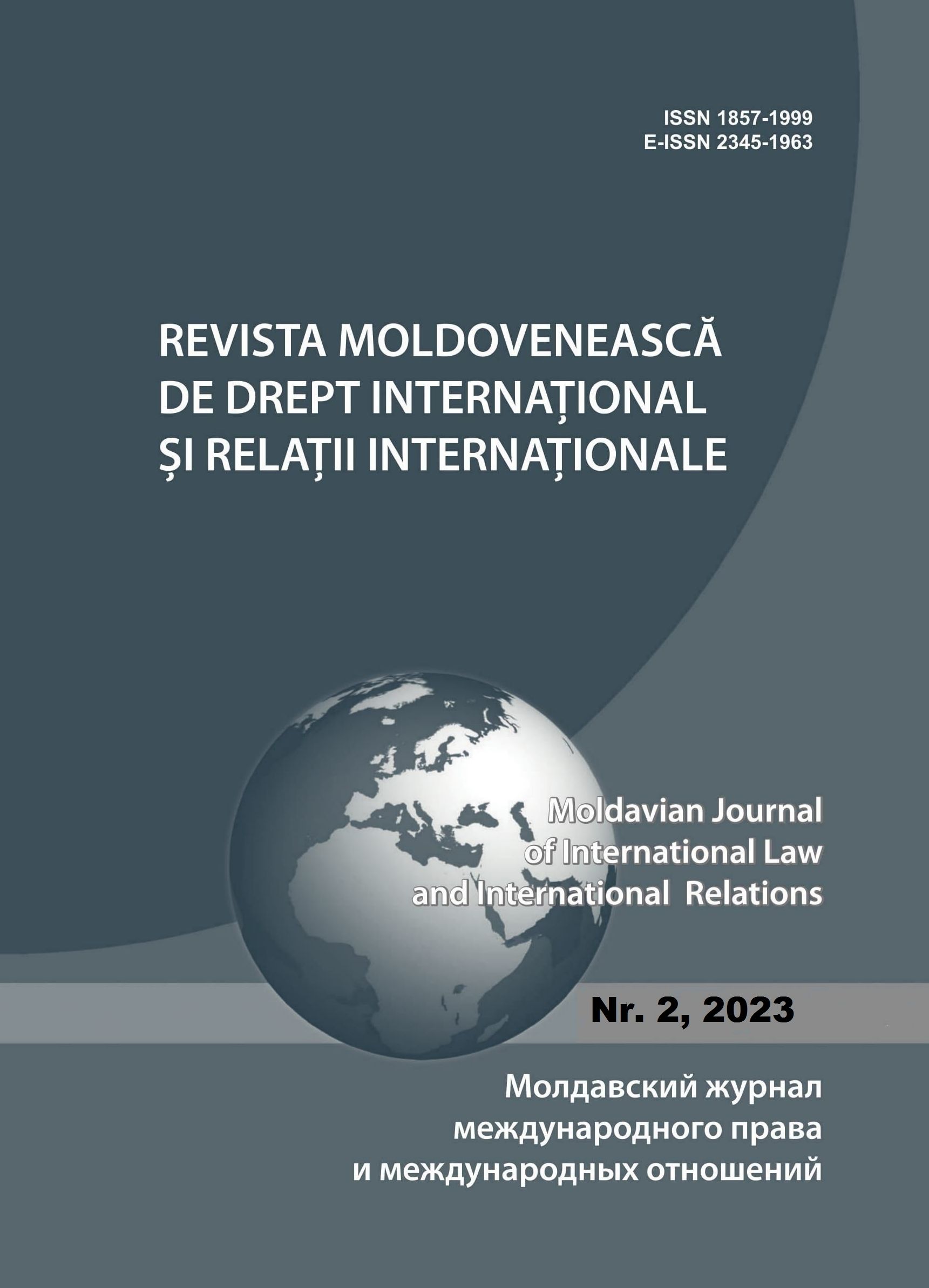Moldavian Journal of International Law and International Relations
International Committee of the Red Cross in the Light of Its Functions as the Main Participant in the Humanitarian Aid Process
Author: GUȘANU Corneliu
JEL Classification: K33
Universal Decimal Classification: 341.33
DOI: https://doi.org/10.61753/1857-1999/2345-1963/2023.18-2.04
GUȘANU Corneliu – Ph.D. student, International Independent University of Moldova (Chisinau, Republic of Moldova).
https://orcid.org/0000-0002-2376-106XEmail: corneliu.gusanu@gmail.com
Keywords: International Committee of the Red Cross, international humanitarian law, Geneva Conventions, humanitarian aid.
Abstract
The International Committee of the Red Cross (ICRC) has been and remains the main actor in the humanitarian aid management process. This fact is evident, at least, by examining the principles that guide this organization in its daily activities, constantly facing difficulties and challenges of various kinds but, at the same time, remaining faithful to the ideals outlined by its founding fathers. Today, the ICRC operates almost worldwide, providing humanitarian assistance wherever there is a need for help to the affected, whether in armed conflicts, natural disasters, or any other crises with negative humanitarian consequences. The ICRC is a specific, if not unique, subject of humanitarian aid provision, also serving as the depository of the main international agreements in the field of international humanitarian law – the Geneva Conventions I–IV of 1949, Additional Protocols I–II of 1977, and Additional Protocol III of 2005. The role of the ICRC in the humanitarian aid process is impeccable; the organization has impeccable authority worldwide, authority largely accumulated thanks to the preservation of neutrality and non-interference from either side of a conflict. Thus, the ICRC makes a significant contribution to the promotion of universal values, including humanitarian assistance to individuals whose vulnerability becomes critical in the crises faced by modern societies.

